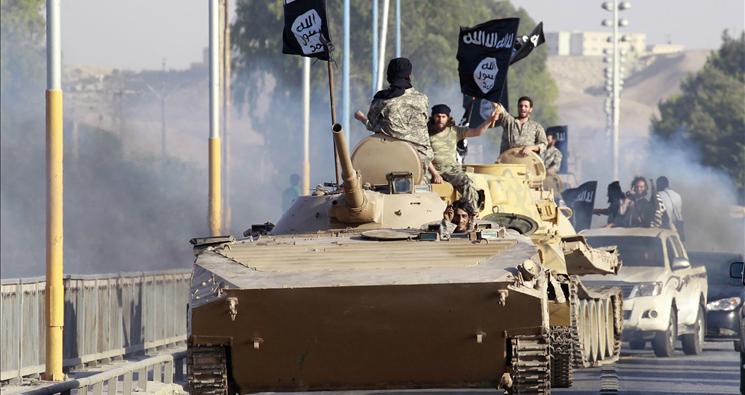How Should Christians Expect Our Nation to Respond to ISIS? With Wrath and Vengeance
Even in the face of jihadist horror, it’s surprising how many Christians are deeply confused about issues of war and peace, with the root of the confusion embedded in the distinction between personal and governmental responsibilities. Admonitions to turn the other cheek, to love our enemies, and to repay good for evil are at core individual responsibilities — responsibilities that not only call on us to imitate Christ’s own example as he forgave his executioners in the midst of his own execution but also relieve us from the terrible and deadly burden of imposing individual justice.
But justice is still required. The instrument of that justice isn’t, for example, the Foley or Sotloff families — as it would have been in primitive societies — but rather our nation, bearing a sword of wrath and vengeance. Romans 12 and 13 show these shifting responsibilities beautifully. First, there is the individual responsibility to love even your enemy:
Do not repay anyone evil for evil. Be careful to do what is right in the eyes of everyone. If it is possible, as far as it depends on you, live at peace with everyone. Do not take revenge, my dear friends, but leave room for God’s wrath, for it is written: “It is mine to avenge; I will repay,”[d] says the Lord. On the contrary:
“If your enemy is hungry, feed him; if he is thirsty, give him something to drink. In doing this, you will heap burning coals on his head.” Do not be overcome by evil, but overcome evil with good.
Critically, however, that does not end the inquiry. God is just, and he has designated an instrument, an “agent” of his wrath and justice.
For rulers hold no terror for those who do right, but for those who do wrong. Do you want to be free from fear of the one in authority? Then do what is right and you will be commended. For the one in authority is God’s servant for your good. But if you do wrong, be afraid, for rulers do not bear the sword for no reason. They are God’s servants, agents of wrath to bring punishment on the wrongdoer. [Emphasis added.]
This is government functioning in its proper role, one of the few roles explicitly designated for government in all of scripture. In other words, we should expect and demand that our nation fulfill this responsibility. In fact, when our nation fails to fulfill this responsibility it places a terrible burden on the families of the fallen — asking them to forgive without even the hope of punishment.
Many Christians seem befuddled when responding to atrocities like beheadings and systematic, deadly persecution — conflicted between the desire to protect the innocent and “do justice” yet feeling as if that somehow violates commands like “turn the other cheek.” But we are not commanded to make sure that others turn their cheeks. Indeed, compelling helplessness and vulnerability is a grave affront to a nation’s citizens. Pacifism — which is nothing more than compelled helplessness — is thus the worst possible response to attack, not just tactically and strategically stupid in secular terms but also a direct abdication of a sacred responsibility.
So, with a clear conscience and firm conviction, our nation’s Christian citizens can and should send President Obama a clear message: ISIS should not be managed. It has to be crushed.
